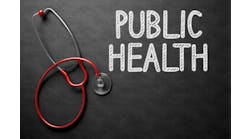A task force of the Commonwealth Fund recently developed a list of six healthcare topics the new administration should target, including increasing health system preparedness for healthcare crises and pandemics. A recent panel discussion dug into the details of the report.
Moderated by David Blumenthal, M.D., M.P.P., president of the nonpartisan Commonwealth Fund, the discussion included Karen Dale, R.N., M.S.N., market president/CEO of AmeriHealth Caritas DC and chief diversity, equity, and inclusion officer for the AmeriHealth Caritas Family of Companies; Julian Harris, M.D., M.B.A., a partner in Health Care Services & Technology Investment for Deerfield Management; and Mark McClellan, M.D., Ph.D., director of the Duke-Margolis Center for Health Policy and former CMS director.
Blumenthal, who also previously served as national coordinator for health IT, noted that the work began well before the pandemic occurred. He said the goal was to help prepare a new administration or a continuation of the old administration, for the challenges that it faced in payment and delivery system reform. They chose six major imperatives that should guide the thinking of a new administration on how to improve the performance of our healthcare system. These include:
• Increasing health system preparedness for healthcare crises and pandemics;
• Increasing health system accountability for the cost, quality and equity of healthcare services;
• Strengthening efficient primary care infrastructure in the United States;
• Supporting engagement of patients and communities in the healthcare of the United States;
• Reducing administrative burden within the healthcare system; and
• Seeking and finding a balance between regulatory and punitive approaches to governing healthcare markets.
As part of the preparedness issue, Dale suggested we think about the healthcare workforce in a more comprehensive way. “If we widen our lens, we will consider both those persons that are clinicians, and those other personnel such as community health workers, peer supports, and others who are so important in helping people navigate the health system in a way that is easily accessible, and more readily understood,” she said. “Having something like a national program that focuses on the continued education, recruitment and training of nonclinical personnel would be important.”
McClellan said he agreed with Dale about having a community health workforce, not only for protecting public health, but also for being part of a better delivery system that moves more care upstream and gets at the root causes of health problems. But he stressed that data is absolutely critical to that too.
“We’ve had calls for a while for better public health data integration,” he said. “I hope, with the strong recommendations on this topic from the report that we're going to make more progress on that.” He said we have seen huge gaps emerge in terms of equity and access during the pandemic, and we just don't have the data systems interoperating to do something about it. “Right now we're collecting a lot of data on vaccinations within public health registries that are not being shared very effectively with the health plans and with healthcare providers that are trusted by people subject to these disparities. And that report makes some very strong recommendations about filling in those gaps before the next pandemic, and recommendations related to starting to collect key information on quality and performance measures by race and ethnicity. The good news is that given all the attention to equity issues over the past year, we've seen more action by health plans to try to get at linking that data. But we really need more of a concerted national effort.”
Dale described some of the work AmeriHealth Caritas has done on identifying disparities during the pandemic. “We have made sure that with every introductory call we're getting race, ethnicity and language data, and we're tracking to ensure that there's improvement in our collection,” she explained. “It was fairly easy, as with any other demographic indicator, to use that to identify the rate at which people were getting tested and coming back positive, connecting with the local health information exchange systems in each market. All of those things were deployed very quickly. It’s a matter of intention to get started on it.”
Public health
Blumenthal stressed that one of the most important things public health agencies are short on is IT infrastructure. “It needs a total overhaul and the rescue package that is being considered by the Congress is an opportunity to invest in information technology infrastructure that is essential to responding to this pandemic, and the next pandemic, and that is one of the recommendations of the task force,” he said, adding that it's essential that that information system encompass reports from private actors, including suppliers of vital supplies that are necessary to make vaccination work in our healthcare system.
Payment reform
Blumenthal noted that the payment system within our healthcare system has not worked extremely well during the pandemic. We've had major losses of revenue for many healthcare providers who survive on fee-for-service and that has resulted in dramatic reductions in income for many clinicians. He asked whether we should be transitioning faster to a different form of payment, one that emphasizes value, not volume, and that may be more resilient and more effective?
McClellan answered that he thinks COVID was just a huge wakeup call for needing to move to a different mechanism of financing our healthcare to get care that's upstream and that can reach out proactively to people who are at risk, rather than trying to just keep your doors open. “We’ve now got lots of examples of how this can be done really well. I was talking with a healthcare group today that's moved into one of these advanced alternative payment models and away from fee for service, where they pre-positioned at-home COVID tests for all of their higher risk beneficiaries,” he said. If any of them have symptoms, they can just do a telehealth call right away to get an evaluation for whether this is something that's serious enough or they think could be COVID. And they've got a test there. And we’ve heard from Karen about some of the steps they've taken for their at-risk patients. We're seeing some of the same programs being implemented for addressing vaccinations. So that's the kind of healthcare that we want."
Taking that beyond the pandemic context, McClellan said, we need to move more care upstream with community health workers, with assistance from apps and digital technologies to help identify people who have risk factors and meet them where they are and figure out what's the best way to address their needs moving beyond traditional medical services to address social needs.
“All of that is really hard to do without moving away from traditional fee for service. And so that's why that report makes some very strong recommendations both for the pandemic and beyond to accelerate the adoption of alternative payment models,” McClellan added. “And we do now have a decade of evidence on models that work, such as accountable care organization models, which CMS is expanding in various forms and the private sector and states are working on as well. So the report encourages accelerating that — moving maybe to some mandatory models for these payment reforms. The report also recognizes this doesn't happen overnight; it takes them new kinds of investments, some significant care redesign, and so it suggests a number of ways in which the federal government can help with some glide paths in supporting providers through this transition.”
Primary care
Blumenthal, who is a primary care physician, said that one of the enduring frustrations and dilemmas of our healthcare system has been the shortage of primary care clinicians, whether they're physicians or nurse practitioners or physician assistants. And that's especially true in communities of color. So one of the questions from the task force is what are some of the things that we could do to build up primary care.
Harris responded that primary care is particularly challenging because of the way that we've structured reimbursement. “My mantra has always been we can significantly increase what we reimburse, or how we compensate primary care providers if they are doing all the right things to help improve quality for the patients that they serve, and helping to manage the health of populations.”
Harris added that some of the things we need to do to make primary care more attractive more broadly will also help to actually diversify who ends up selecting primary care as their chosen profession, because we're closing that gap between primary care and specialty care. “I also think it's expanding to think about nurse practitioners, physician's assistants, extenders, and others, who play important roles in primary care.”


